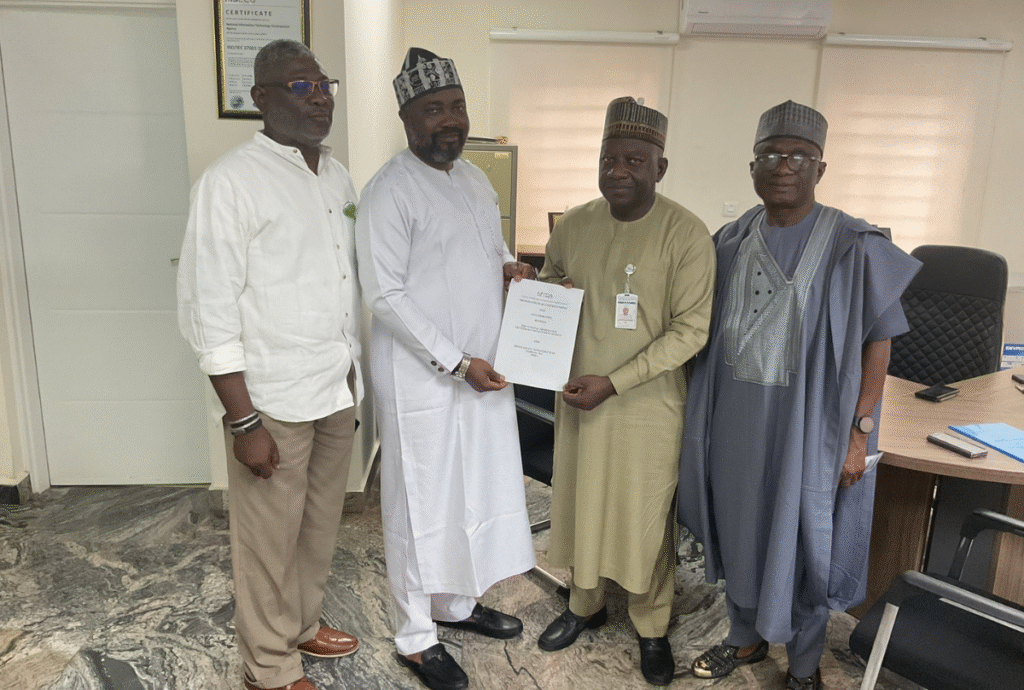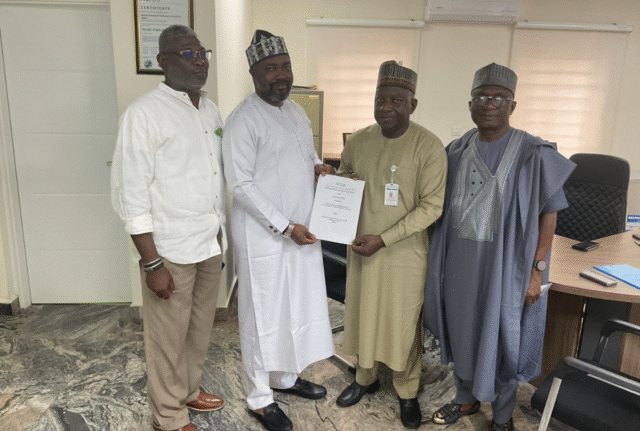The National Information Technology Development Agency (NITDA) and the Bauchi State Government have joined forces to launch a Digital Literacy and Skills Framework that promises to transform the state’s digital future. The initiative aims to equip over 100,000 citizens with essential and advanced digital skills by 2027, positioning Bauchi as a leading hub for technology innovation and inclusion.
Table of Contents
“Digital literacy is no longer optional”
Governor Bala Abdulkadir Mohammed, speaking at the official launch, declared digital literacy a fundamental right for every citizen. He described the framework as a “lifeline” for young people, public servants, and entrepreneurs, helping them compete in a rapidly evolving global economy.
“The world is changing fast. If our people cannot participate in the digital space, they will be left behind. This programme is about giving every Bauchi citizen a fair shot at the future,” the governor said.
The governor also linked the initiative to his administration’s broader poverty alleviation and youth empowerment agenda, stating that technology is a key driver for job creation, innovation, and governance efficiency.

NITDA and Bauchi State: A partnership with national impact
The framework is the product of collaboration between NITDA and the Bauchi State Bureau for ICT and Digital Economy. It aligns with NITDA’s broader national agenda, which targets 70% digital literacy in Nigeria by 2027 and an ambitious 95% by 2030.
Dr. Ayodeji Eniola, who represented NITDA Director-General Kashifu Inuwa Abdullahi, emphasised that the agency is committed to decentralising digital opportunities so they reach states and rural communities.
“Our goal is to ensure that no Nigerian, regardless of location, is left out of the digital economy. Bauchi’s initiative is a model we want other states to follow,” Eniola noted.
From basic skills to global careers
The Digital Literacy and Skills Framework will operate at two levels:
- Foundational Skills Training – Targeting over 100,000 people, including students, civil servants, and entrepreneurs, to ensure basic competence in computer use, online safety, and digital communication.
- Advanced Skills Training – Focused on 2,000 youths in high-demand areas such as software development, artificial intelligence, data analytics, and cybersecurity.
The idea is to create a pipeline of talent that meets both local labour market needs and global job opportunities.

Cybernations: Bauchi’s bold move in cybersecurity
A key pillar of the initiative is the Cybernations Programme, which aims to train 500 youths as certified cybersecurity professionals. This makes Bauchi the first Nigerian state—and only the second in Africa—to implement such a structured cybersecurity capacity-building programme.
The project is being executed in partnership with Protexxa Inc., a Canadian cybersecurity company, and is designed to open pathways to both local employment and foreign currency-earning remote work.
Hayatudeen Babamaji, Director-General of the Bauchi ICT Bureau, explained:
“Cybernations is not just about protecting data. It’s about securing our economic future. Cybersecurity is one of the most lucrative fields globally, and our youths deserve a place in that space.”
Backed by infrastructure and global partners
Beyond training, the initiative is supported by Galaxy Backbone, Nigeria’s government-owned ICT infrastructure provider. Its Managing Director, Professor Ibrahim Adeyanju, confirmed plans to expand broadband access in Bauchi through fibre optic cables and eLTE base stations.
Abi-Hafsat Abubakar, Protexxa’s Country Representative, described the project as a gateway to over 3.5 million global cybersecurity jobs.
The launch drew national and international attention, with notable guests including Dr. Aminu Maida (NCC), Dr. Vincent Olatunji (NDPC), Mrs. Nkechi Idehen (Nigerian Communication Satellite Limited), and Rick Huijbregts (Protexxa Inc., Canada).
Why this matters
The NITDA–Bauchi partnership is more than a training programme; it’s a blueprint for bridging Nigeria’s digital divide. By integrating digital skills into governance, education, and entrepreneurship, the framework ensures that technology adoption is inclusive, practical, and future-oriented.
Key benefits include:
- Mass digital inclusion – Bringing both urban and rural populations into the digital economy.
- Job creation – Linking trained citizens with local startups, SMEs, and global employers.
- Cyber resilience – Building a workforce capable of defending Nigeria’s digital infrastructure.
- Economic diversification – Reducing dependence on traditional sectors by expanding the tech sector.

Looking ahead
Governor Mohammed affirmed that the state will sustain and expand the programme beyond 2027. Plans are already in motion to integrate digital literacy into primary and secondary school curricula and to establish partnerships with tech hubs across Africa.
“We are planting seeds today that will yield results for decades to come. The Bauchi of tomorrow will be a digital leader,” he said.
A model for other states
With Nigeria’s tech sector projected to contribute $13 billion to GDP by 2030, initiatives like Bauchi’s are critical to ensuring that growth is evenly distributed. Experts say the model—combining policy, training, and infrastructure—could be replicated nationwide.
Dr. Eniola of NITDA summed it up:
“Bauchi is showing that when states and federal agencies work together with the private sector, the impact can be massive. This is how we make Nigeria a true digital nation.”
Join Our Social Media Channels:
WhatsApp: NaijaEyes
Facebook: NaijaEyes
Twitter: NaijaEyes
Instagram: NaijaEyes
TikTok: NaijaEyes





